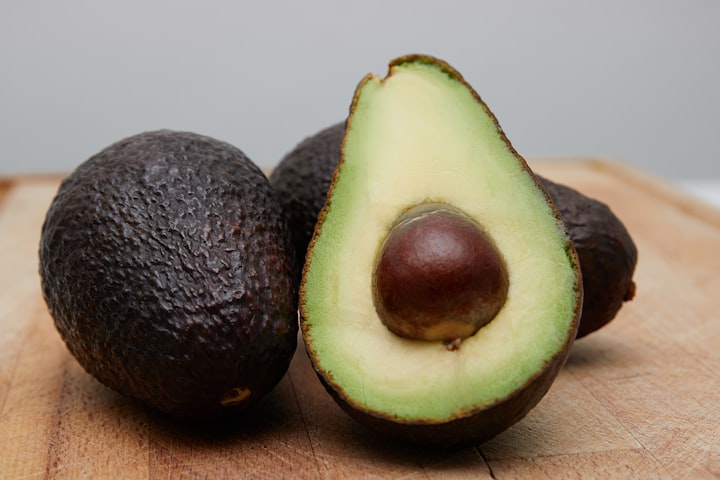Avocado: A Superfood? Exploring the Scientific Evidence
Discover how science explains relevant facts about avocado

Avocado has been hailed as a superfood by many health enthusiasts, and for good reason. This unique fruit is packed with healthy fats, fiber, vitamins, and minerals that are essential for a balanced and nutritious diet. However, with so many foods claiming to be "superfoods," it's important to take a closer look at the scientific evidence behind these claims.
Let's explore the scientific evidence behind avocado and why it is considered a superfood.
First, let's take a look at the nutrient content of avocados. Avocado is rich in monounsaturated and polyunsaturated fats, which are essential for maintaining healthy cholesterol levels, promoting heart health, and reducing the risk of chronic diseases such as diabetes and cancer. Avocado also contains fiber, potassium, vitamin K, vitamin E, and vitamin C, all of which play important roles in maintaining good health. The following is a more detailed explanation of the nutrient facts of this appreciated food.
1. Healthy Fats: Avocados are high in healthy fats, specifically monounsaturated and polyunsaturated fats. These fats are essential for good health and can help to lower cholesterol levels and reduce the risk of heart disease.
2. Fiber: Avocados are an excellent source of dietary fiber, which is important for maintaining digestive health and reducing the risk of certain diseases, such as diabetes and heart disease.
3. Vitamins: Avocados are a good source of several vitamins, including vitamin C, vitamin K, vitamin B6, and vitamin E. These vitamins are important for maintaining healthy skin, eyes, and immune function.
4. Minerals: Avocados are also a good source of minerals like potassium and magnesium, which are important for maintaining healthy blood pressure levels and reducing the risk of heart disease.
5. Antioxidants: Avocados contain a range of antioxidants, including lutein and zeaxanthin, which are important for maintaining eye health and reducing the risk of age-related eye diseases One study published in the Journal of Agricultural and Food Chemistry found that This particular feature avocados helps protect the body against damage to cells from free radical.
6. Protein: Avocados are also a good source of plant-based protein, making them a great addition to vegetarian and vegan diets.
The Journal of Clinical Lipidology published the result of many different great studies on avocado. One of these studies shows that adding avocado to a low-fat diet can significantly improve cholesterol levels. The study also demonstrates that participants who added avocado to their daily diet for six months experienced a reduction in LDL (bad) cholesterol levels, as well as an increase in HDL (good) cholesterol levels.
Avocado has also been linked to improved heart health. A review of studies published in the Journal of the American Heart Association found that avocado consumption can lower the risk of heart disease by reducing LDL cholesterol, blood pressure, and inflammation.
In addition to heart health, avocado has been shown to have a positive effect on weight management. How is that? For one thing avocados have a low glicemy index (GI). Foods with a low glycemic index release glucose slowly into the bloodstream, helping to maintain stable blood sugar levels and preventing spikes in insulin that can contribute to weight gain. This feature in itself makes avocados a good choice for weight management.
Moreover, and as outlined above, avocados are packed with nutrients such as vitamins, minerals, and antioxidants, which can help support overall health and weight management. A study published in the Journal of the Academy of Nutrition and Dietetics found that adding half an avocado to lunch can reduce hunger and increase satisfaction, leading to a lower calorie intake throughout the day.
In conclusion, scientific evidence suggests that avocado is indeed a superfood, with numerous health benefits that are supported by research. From improving cholesterol levels to promoting heart health and aiding in weight management, avocado is a delicious and nutritious addition to any diet. So go ahead and add some avocado to your next meal and enjoy the many benefits of this amazing superfood!
Tips: Why don't you try Keto Diet plan for incredible recipes using avocado? Click here to have access to the plan.
Sources:
https://www.ahajournals.org/doi/10.1161/JAHA.121.024014
https://www.sciencedirect.com/science/article/pii/S1933287415004274
Avocado Consumption and Cardiometabolic Health, retrieved from https://www.jandonline.org/article/S2212-2672(22)01257-6/fulltext
About the Creator
Jean Ronald Jn Francois
I am an entrepreneur. For the past 2 decades, I've been working hard to improve the quality of life of those around me. I'm a happy husband and a loving father. I just completed my bachelor's degree in Science at Madonna University.
Reader insights
Nice work
Very well written. Keep up the good work!
Top insight
Expert insights and opinions
Arguments were carefully researched and presented






Comments (1)
Very interesting. Nowadays people have the tendency to forget the advantages of eating proper food. By publishing useful information about food, not only the author help people to choose wisely what to consume, but he also help them being healthy. Really appreciate the initiative.